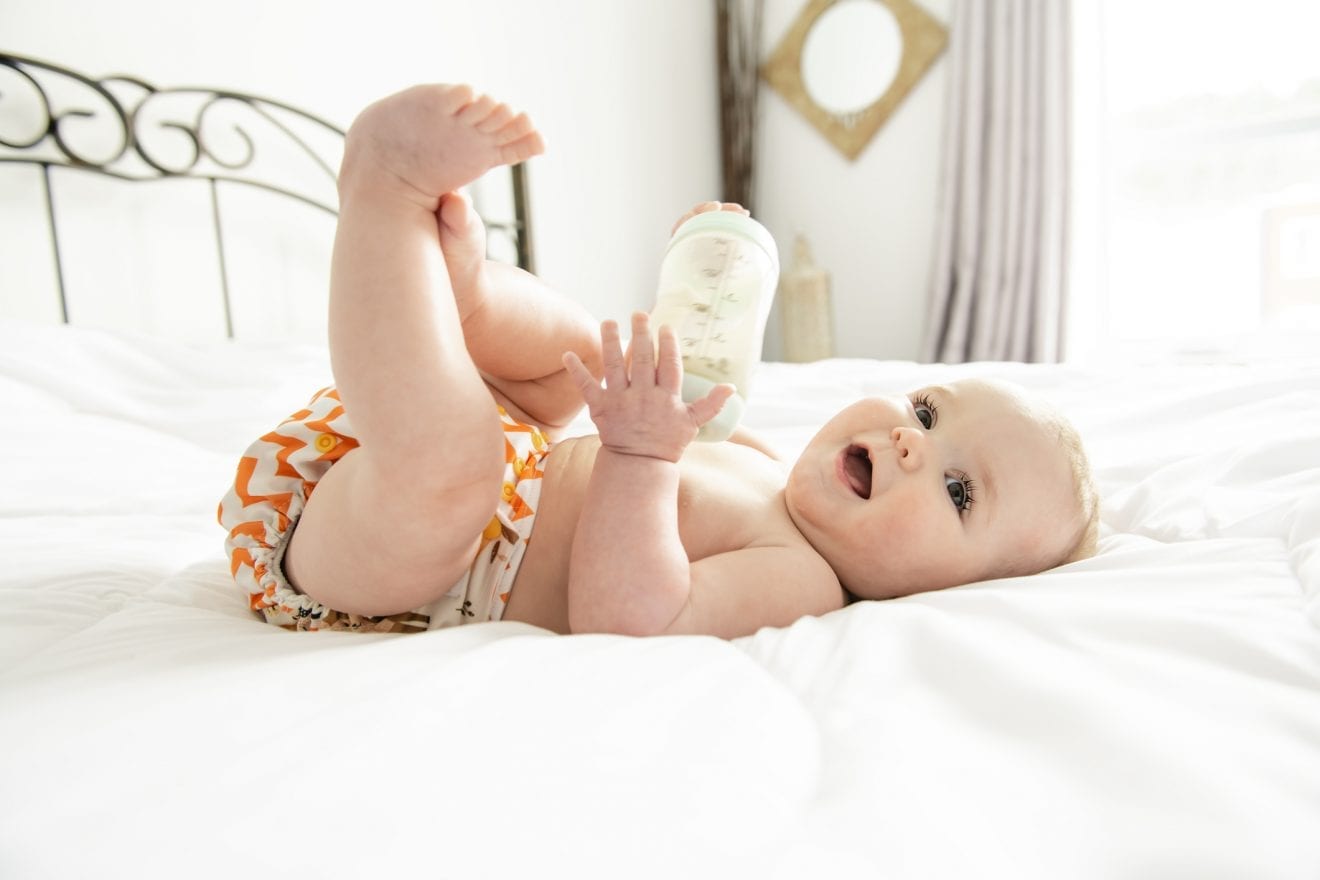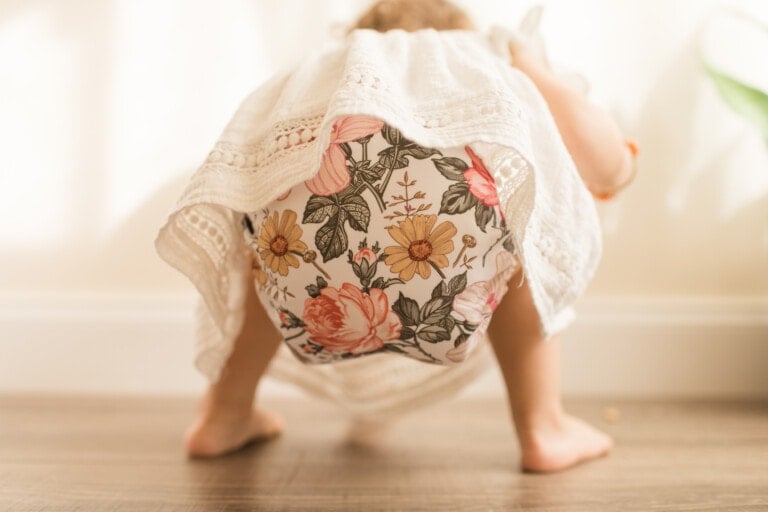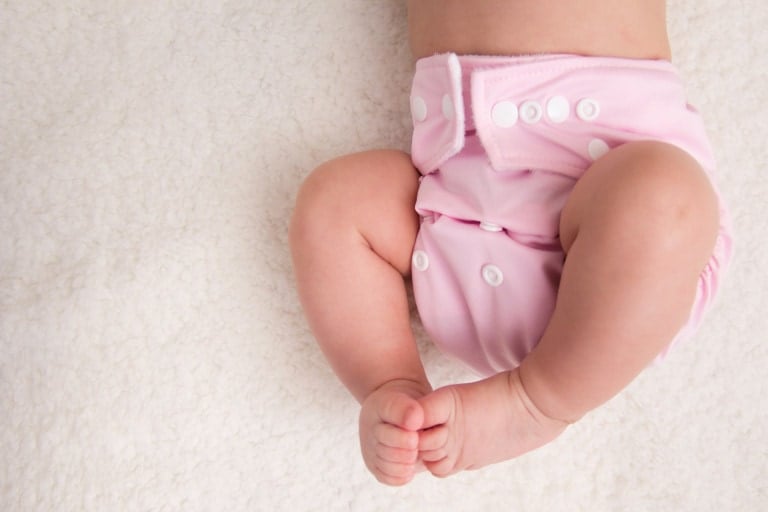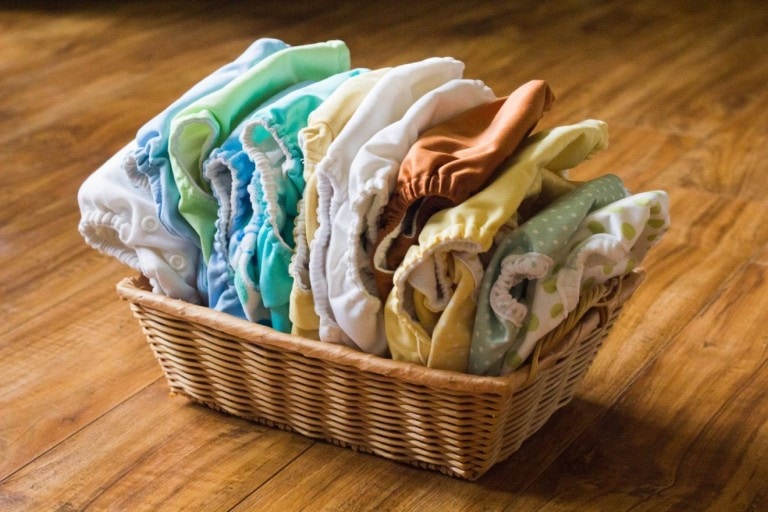Are you having a baby, or have already given birth, but are rethinking your diapering options? While disposable diapers are most commonly used, more and more moms are starting to consider cloth diapers. If you are interested in learning more but have no idea where to begin, keep reading! We will look at the top five things you need to know about cloth diapering, what you need to get started, and some of the best cloth diaper options out there.
1. There Are Different Kinds of Cloth Diapers
Believe it or not, there is more than one way to cloth diaper! In fact, there are quite a few different options. Let’s look at a few of the various options to see which one may work best for you and your baby.
- Prefolds: Prefolds are great because they already come with added absorbency in the center of the diaper. Prefolds can easily be purchased online (like these, which are very economical and super soft)! With classic prefolds, you would also need cloth diaper fasteners like these.
- Flats: Flats require a bit more work than some of the other options, but they can be customized to your baby’s size! This is one of the biggest reasons mamas choose to use flats like this.
- Fitted Cloth Diapers: Fitted cloth diapers are just as they sound. They have a fitted build around your little one’s legs and are made from absorbent fabric.
- All-in-Ones: All-in-one cloth diapers are the most convenient option, as they don’t require you to do any folding, and they come with a waterproof lining. These are an excellent option.
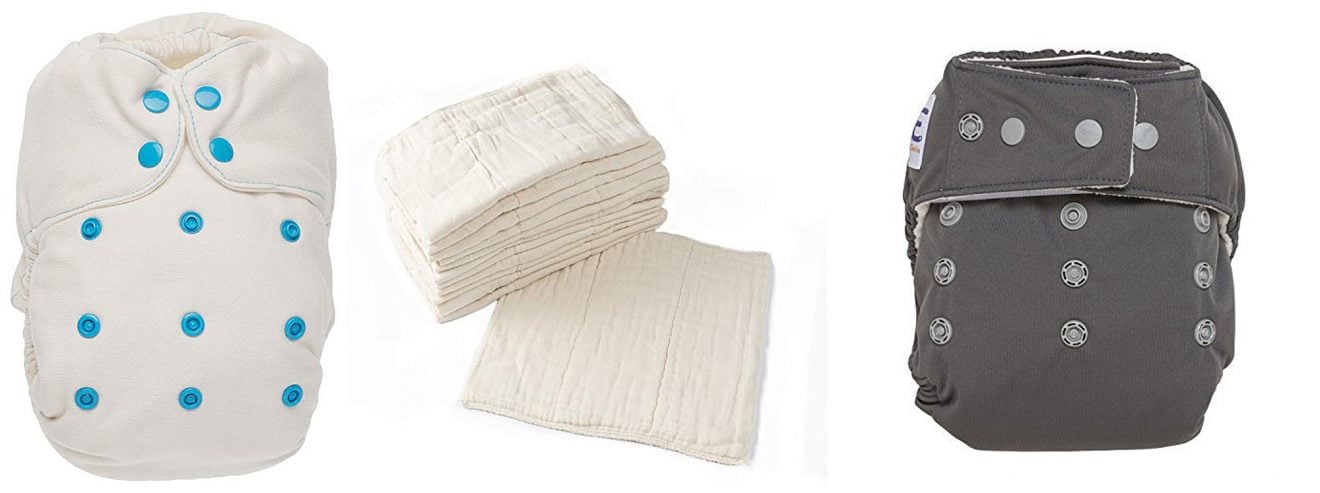
2. It Requires an Initial Investment
One of the biggest perks of cloth diapers is the money you will save. Let’s face it, disposable diapers can get expensive, especially during those newborn months! But with cloth diapering, you will have to pay some money upfront to stock up on diapers. You may pay a little more on your water bill each month, plus the cost of additional laundry detergent, but they will still be cheaper than disposables! If you consider that the average disposable diaper is $.20 each, you can save quite a bit of money over time by making the switch.
3. Cloth Diapers Should Be Cleaned in a Specific Way
This is often the biggest question moms have before they jump into the decision to use cloth diapers. There are plenty of concerns surrounding this, like how do you actually get the stains out? And how do you wash the diapers without leaving behind a dirty diaper smell in your washing machine?
First things first, what do you do with poopy diapers? You will want to use a diaper sprayer that you can hook onto your toilet like this one. These are pretty reasonably priced and make cleaning easier! You will want to spray the diaper and leave it wet until you are ready to wash it to help reduce the chance of it staining. Not into the idea of a diaper sprayer? These liners work well to help prevent stains, catch poop, and add extra absorbency, and they are flushable, making life that much easier when it comes to diaper changes!
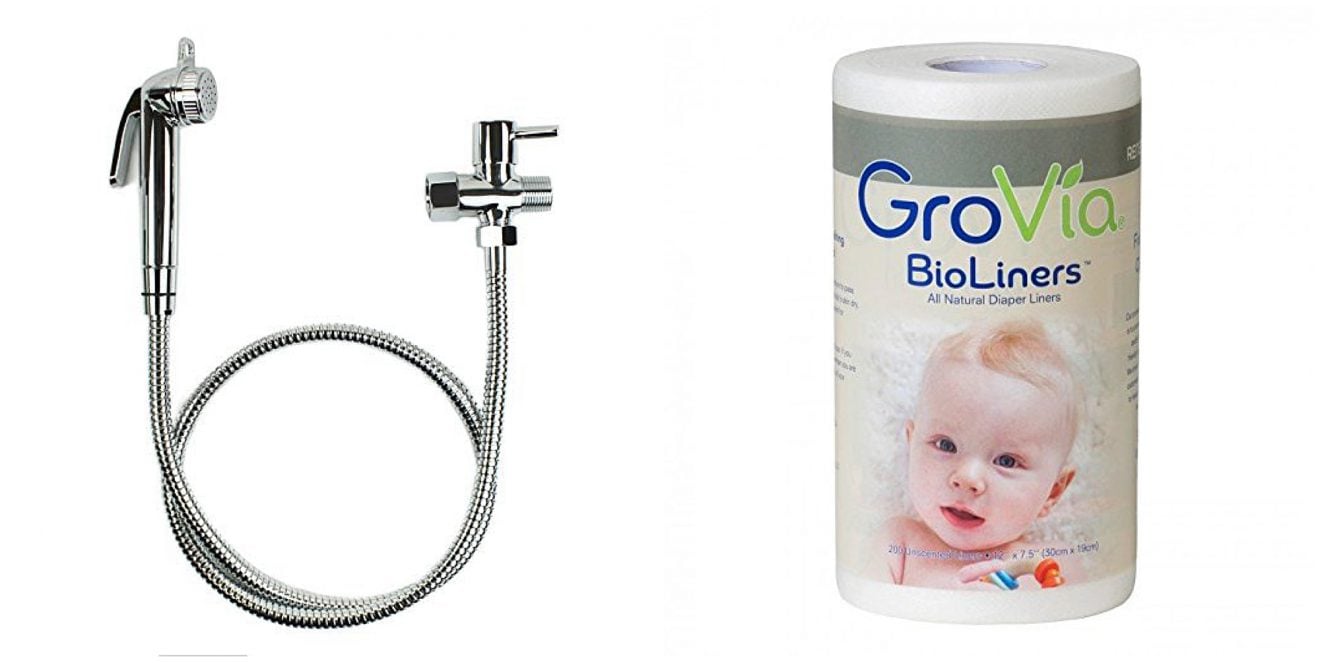
So, where do you put these now dirty and very wet diapers that you just sprayed? You can toss the cloth diapers in a diaper pail (you can even purchase them with liners that can be washed with your diapers!) or something similar, just as you would disposable diapers. Keep them in there until ready to wash!
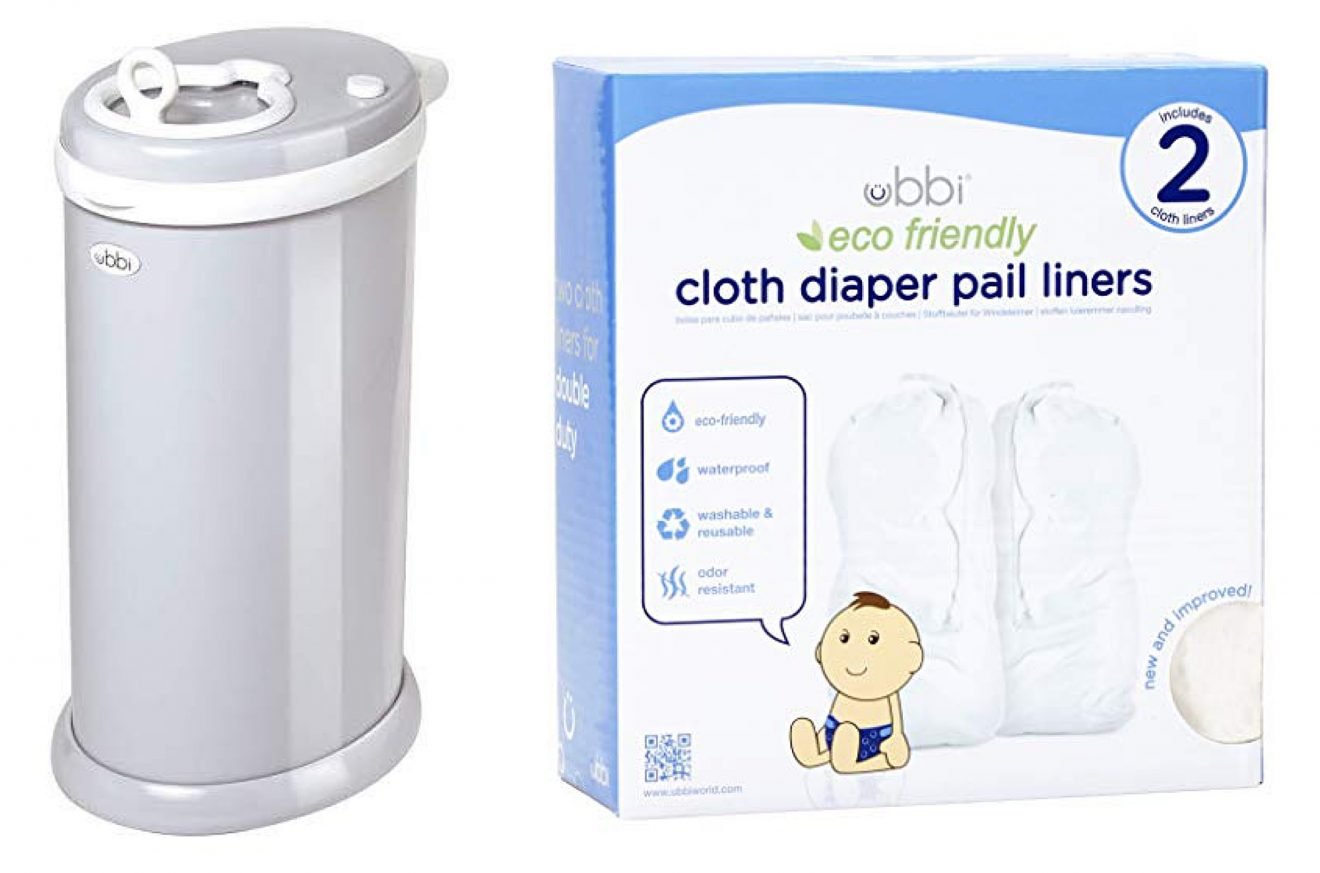
When you are ready to wash them (preferably every day to every couple of days,) wash no more than a dozen at a time, if possible, and pre-rinse with cold water without detergent first. Then, set to regular cycle using warm water and a natural, hypoallergenic detergent. Once clean, place in the dryer, and get ready to use again!
That’s all there is to it! Not as complicated as you thought, right?
4. How Many Do You Need?
This all depends on how often you want to do laundry. While some moms choose to wash their cloth diapers daily, that’s unnecessary. It’s especially unnecessary if you stock up on diapers and have enough to get you through a couple of days. The average newborn will need about 10-12 diaper changes per day. As your baby gets older, that number will go down to anywhere from 8-10 until you reach toddler age, where it decreases a little more. Most moms will want to have a good stock of at least 20 cloth diapers to get them through at least two days between laundry.
5. There Are Ways to Prevent Leaks
Once your little one is sleeping through the night, you may want to think about a more absorbent diaper option for nighttime. If you are using cloth diapers, you do have some options here. There are some overnight cloth diapers made for night that come with cotton hemp inserts for added absorbency like these. You can also buy extra absorbency inserts separately and use them in your favorite cloth diapers.
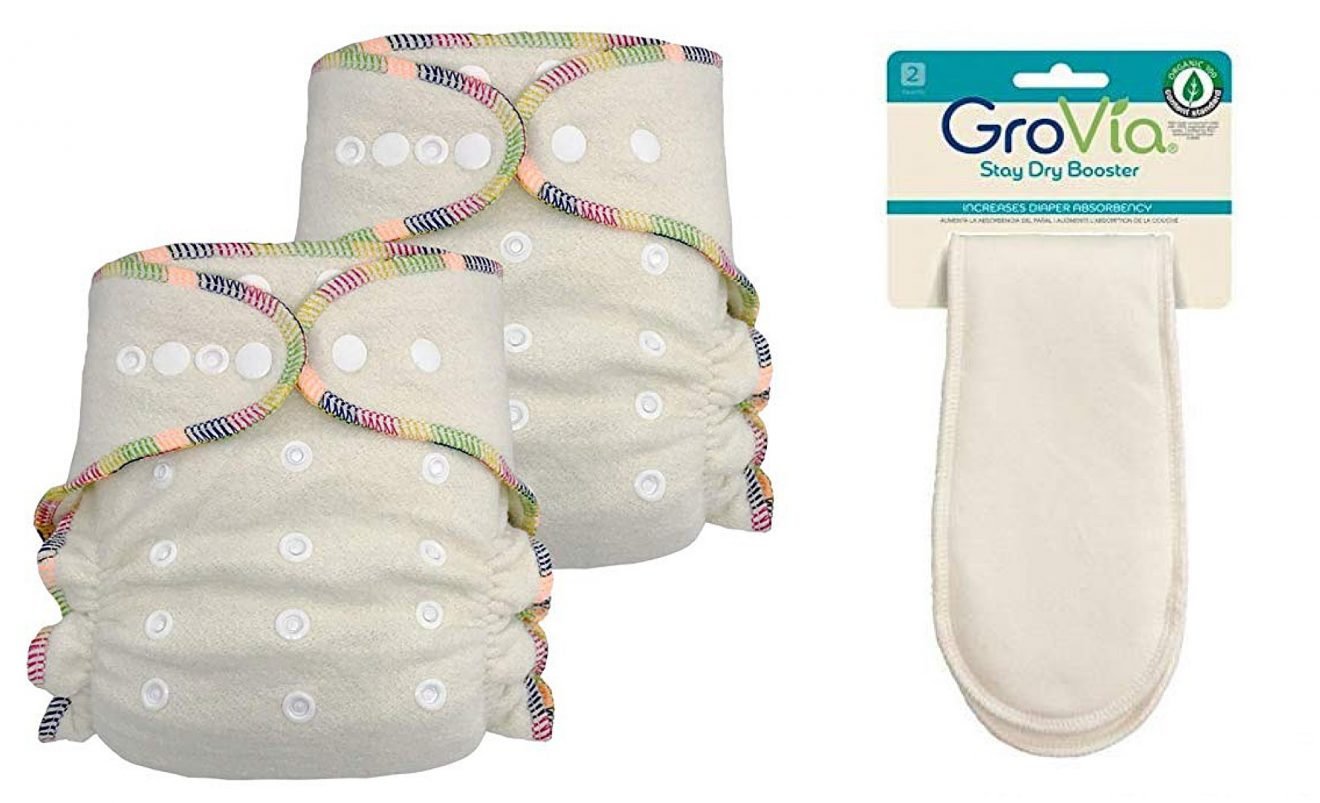
6. The Best Cloth Diaper Options
So now that you know a little more about what goes into using cloth diapers, let’s look at some of the most popular and well-known cloth diaper brands that you can easily find online:
So there you have it! Your guide to getting started with cloth diapers. If you are looking for a natural, more economical diapering choice, then cloth diapering may be something you should consider! While it’s definitely not for everyone, it has become quite a popular choice among moms looking for a natural way to cover their little one’s bottoms while also saving money and reducing environmental waste.













